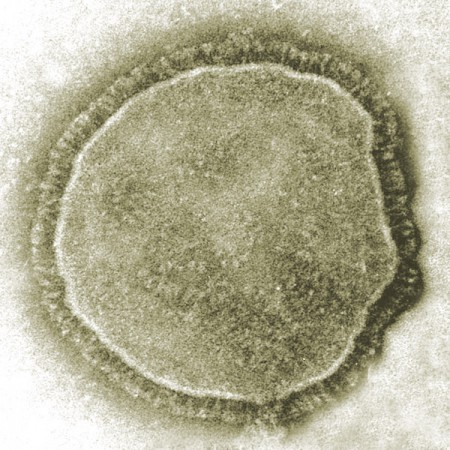Gov. Cuomo reminds New Yorkers to vaccinate against measles

The measles virus. Photo: AJ Cann, Creative Commons, some rights reserved
With more New York state residents getting measles than they have since 1996, Gov. Andrew Cuomo is urging New Yorkers to vaccinate. In a press release Friday, Gov. Cuomo said “measles is serious, highly contagious disease that is not just contained to young children. While many New Yorkers have likely already received measles vaccinations, with the number of outbreaks at a higher level in years the State is taking the opportunity to urge New Yorkers check with their healthcare provider to make sure they and all of their family members’ immunizations are up-to-date.”
That press release gave some numbers on measles in the state:
The Centers for Disease Control and Prevention (CDC) reports that measles has infected 129 people in 13 states in 2014, the most in the first four months of any year since 1996; 29 of those infections have been in New York. In 2013, an outbreak of 58 cases in New York City was the largest reported localized outbreak of the measles in the U.S. since 1996.
And, also from that press release, here’s a little more information on measles:
Measles is so contagious that if one person has it, 90 percent of the people close to that person who are not immune will also become infected with the measles virus It is spread by contact with nasal or throat secretions of infected people. You can be infected by measles virus suspended in the air for an hour or more after the infected person has left the room. The most common complications of measles are diarrhea, pneumonia, and ear infection, but it may also cause brain damage and rarely death. It is particularly harmful to persons with immunosuppression, pregnant women and very young children.
Measles symptoms usually appear in 10 to 12 days, but can occur as late as 18 days after exposure. Symptoms generally appear in two stages:
• In the first stage, which lasts two to four days, the individual may have a runny nose, cough and a slight fever. Eyes may become reddened and sensitive to light while the fever gradually rises each day, often peaking as high as 103° to 105° F. Small bluish white spots surrounded by a reddish area may also appear on the gums and inside of the cheeks.
• The second stage begins on the third to seventh day, and consists of a red blotchy rash lasting five to six days. The rash usually begins on the face and then spreads downward and outward, reaching the hands and feet. The rash fades in the same order that it appeared, from head to extremities. Although measles is usually considered a childhood disease, it can be contracted at any age.
The single best way to prevent measles is to be vaccinated. Most New Yorkers have been vaccinated, but if unsure, they should check with their healthcare provider. Individuals should receive 2 doses of Measles, Mumps, and Rubella (MMR) vaccine to be protected. The first dose should be given at 12-15 months of age and the second dose is routinely given at 4 to 6 years of age, but may be given as soon as 28 days after the first dose. Anyone at any age who is not immune to measles, and has no condition that would prohibit receiving the vaccine, should receive 2 doses of MMR vaccine at least 28 days apart.
Individuals are not at-risk of contracting measles if they are immune. A person is considered immune if he or she has received two doses of MMR vaccine, or if he or she was born before January 1, 1957, or has a history of laboratory-confirmed measles, or has a blood test confirming measles immunity. Any of the above confers immunity.
Tags: Cuomo, health, health care, measles, vaccination







